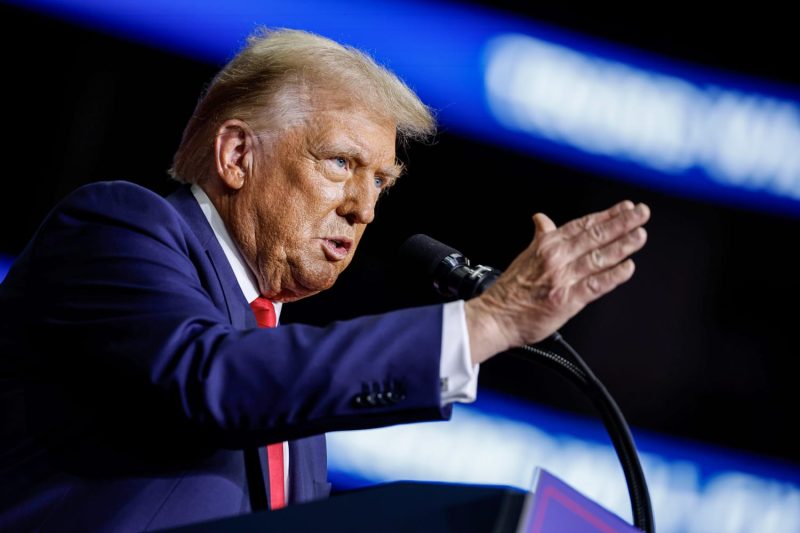The US business sector is grappling with a significant increase in tariff-related concerns due to President Trump’s high-stakes trade game plan. Companies are responding by investing heavily in lobbyists and looking for loopholes to mitigate potential impacts. This trend reflects a growing apprehension about the adverse effects these tariff measures may have on the economy, thereby signaling a critical, yet overlooked facet of the Trump administration’s trade policies.
President Trump’s stringent stance on international trade, infused with tariff threats targeting China, Europe, and Mexico, remains a catalyst for the rising anxiety among US companies. As repercussions extend beyond unilateral trade policy, US industries are forced to reevaluate their strategies to safeguard their interests.
Companies are pouring resources into lobbying efforts to communicate their concerns to the administration and achieve policy shifts that favor their businesses. This activity surge is corroborated by reports highlighting massive gains by lobbying firms specializing in trade-related matters. These firms appear to be profiting significantly from the business sector’s growing discomfort, such as Sandler, Travis & Rosenberg, who confirms to have never been busier with tariff-related concerns.
In addition to recruiting lobbyists, US companies are exploring loopholes within the tariff system. For instance, some are using the ‘Country of Origin’ marker to their advantage. A product can evade tariffs if it is substantially transformed in another nation, even if its components originate from a country under the tariff list. Such strategies provide an escape route for companies to manage the restrictive trade environment ushered in by the trade wars.
The United States Fashion Industry Association, an example of an industry taking laborious measures, is helping members navigate the complex world of tariff classification. It aids members in tracking potential tariff changes on a product-by-product basis, thereby enabling companies to adjust their sourcing strategies accordingly and avoid severe setbacks.
The tariff evasion strategies are, however, not without risk. Misrepresentation of a product’s origin can lead to severe penalties, including fines and imprisonment. Additionally, deviating from established trading partners upsets supply chains, potentially leading to less predictable business scenarios and market instability.
Moreover, companies seeking exemptions from tariffs are also facing hurdles. The increased volume of exemption requests has led to substantial delays and uncertainty, impacting those businesses that rely heavily on imported materials for their operations.
In essence, this escalating trade standoff implies an enormous expenditure for US companies. The resources diverted to lobbying, searching for loopholes, and tariff evasion strategies could have been better invested, creating jobs or fostering innovation. As such, even if these maneuvers reduce companies’ immediate financial pain, they have a broader, potentially detrimentally long-term effect on the US economy.
This scenario encourages reflection on the broader implications of protectionist trade policies beyond their intended objectives. While they may aim to enhance domestic industries’ competitiveness and safeguard jobs, the anxieties and costs they inflict on businesses may in fact counteract these goals. The resulting climate of uncertainty and instability could deter investment, stifle economic growth, and potentially result in job loss. In other words, the road paved with tariffs could lead, paradoxically, not towards economic prosperity, but potential economic peril.
In light of these intricate issues, it is paramount to foster a comprehensive, nuanced discussion on trade policies. Decision-makers must understand the diverse impacts of their policies on businesses and the economy at large, to ensure a stable and sustainable growth path for the US economy.
Recent events underline the importance of an open dialogue between policymakers and businesses. As companies scramble to cope with the new tariffs, their reactions serve as a clear signal. Thus, the extent to which their concerns will influence future policies remains an area to watch closely- and could be a crucial determinant of what lies ahead for America’s trade scenario.
